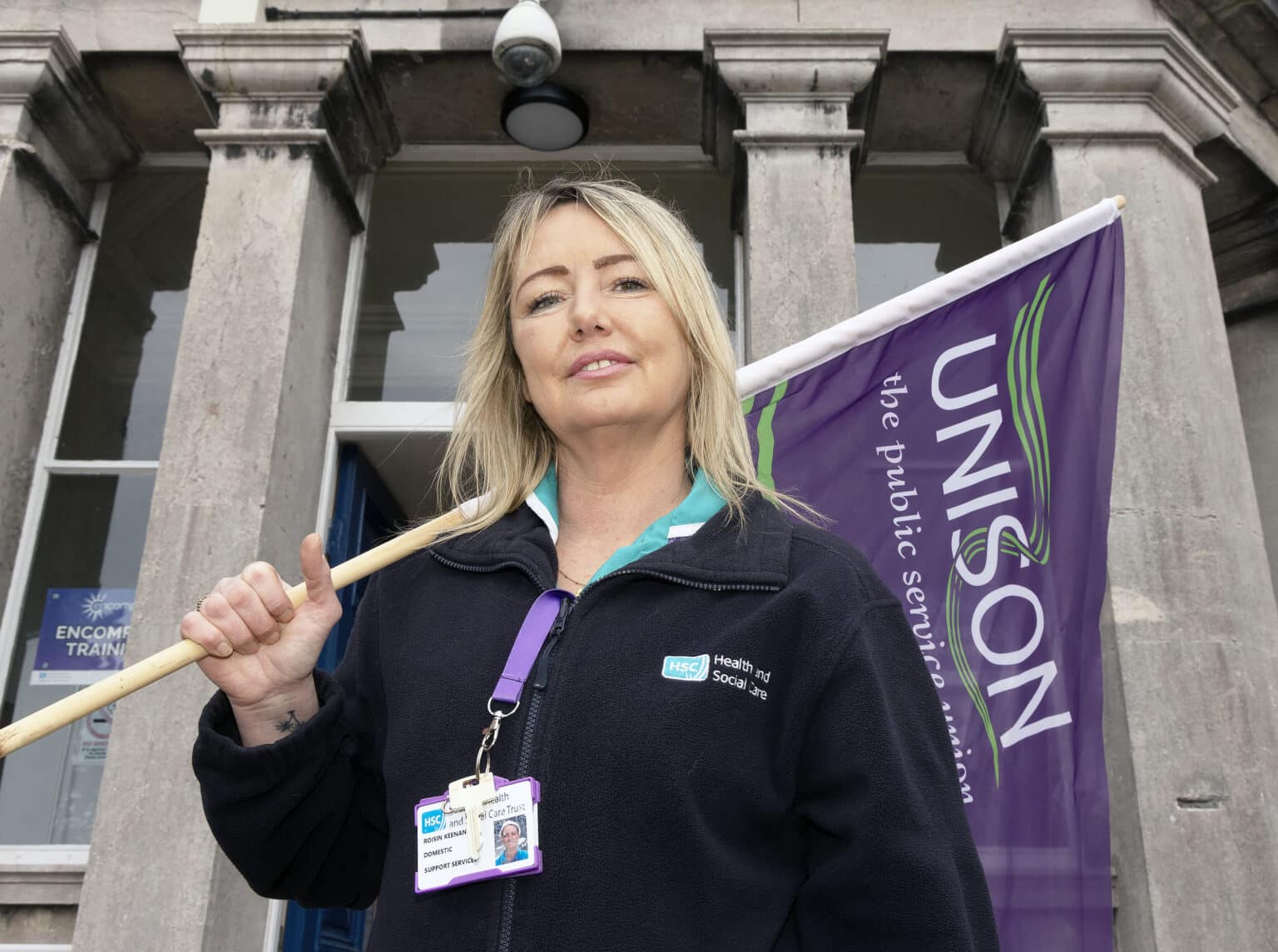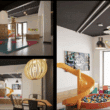
“Hell” is the word Roisin Keenan – a hospital domestic in Armagh – uses to describe the pandemic.
For Roisin and her colleagues, at St Luke’s Hospital, on the Loughgall Road, were forced to take huge risks during COVID – with no reward.
“It was terrifying. Patients were coming out of high-dependency units after having COVID, and we were being thrown straight in to clean them,” she told Unison Magazine.
“Every day, I’d come home from work and take my work clothes off in the bathroom and wash them. I was so scared of bringing the virus home to my children – we all were.”
While all health workers were at risk during the pandemic, Roisin says she felt the Health Service hierarchy in force like never before.
“There’s a class system in hospitals and the cleaners are right at the bottom,” she says.
“I remember once kitting myself up to clean the high-dependency unit and one of the nurses challenged me about using one of the heavy masks. She said, ‘I don’t mean to be rude, but are you allowed to use them?’.
“I said to her, ‘If you want to go in and clean a unit where people have COVID, I can give it to you’.”
Yet the risks involved in cleaning hospitals haven’t disappeared since lockdown ended.
“We’re working exposed to C.diff and norovirus and COVID-19 and we’re on £11.45 an hour,” says Roisin.
In the seven years she’s worked as a hospital domestic, Roisin has seen how staffing shortages and cost-cutting measures in the Health Service have made life harder for cleaners.
“I do this job because I like helping people. But what we do is underpaid and our workloads are getting heavier because people leave the job and there doesn’t seem much hurry to employ more,” adds Roisin.
“We used to get provided with bottled water in the summer because it’s such a physical job. But they cut that and we were told to drink the water out of the taps. Not even two months after that, there was Legionnaires’ disease found in one of the pipes in the building. And even after that, they didn’t reinstate the bottled water.
“I feel looked down on, I really do. People generally don’t respect cleaners because it’s work that’s mostly done by women. We’re expected to do so much, and then we go home and we look after our children and our elderly parents, on top of a million tasks. We’re all burned out.”
According to the Equality and Human Rights Commission, the cleaning industry employs an estimated half a million people across the UK, is 79% female, and has a higher-than-average number of ethnic minority, migrant and older workers.
So what keeps Roisin going in such a tough job?
“My colleagues,” she says. “We have good camaraderie. Our supervisor is good too. We have a calendar in our break room and everyone’s birthday is on it.
“We do a collection every month so that everybody gets a bunch of flowers and something nice on their birthday.
“We make each other feel valued, even if nobody else does.”






